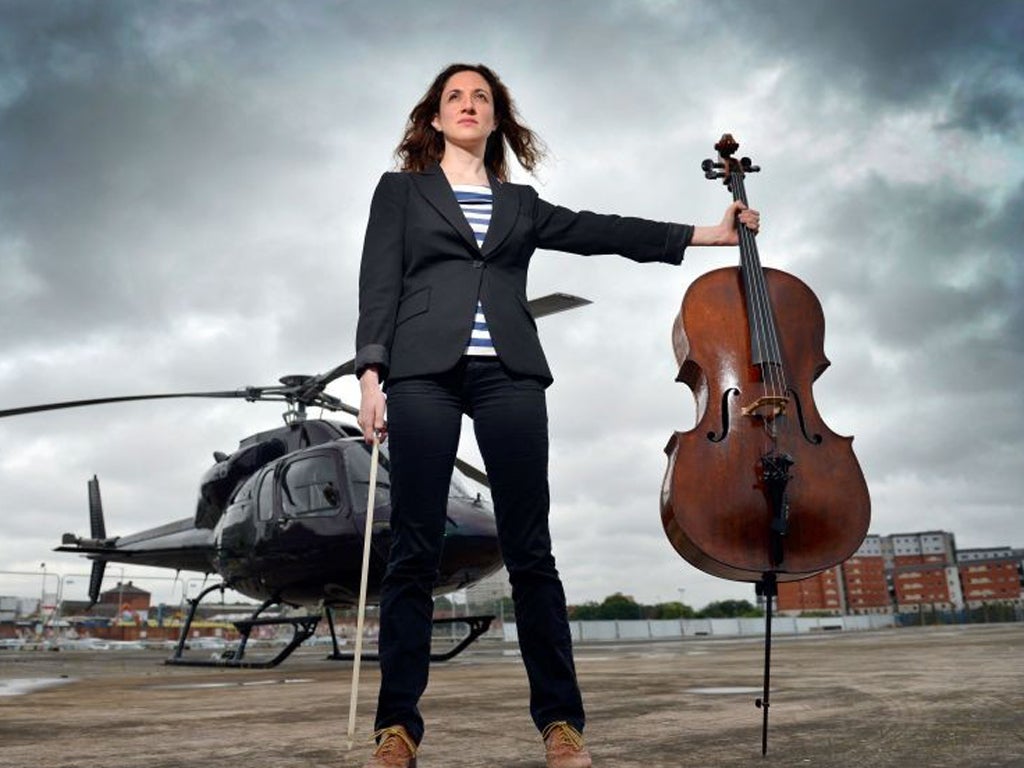Mittwoch aus Licht, Argyle Works, Birmingham

Your support helps us to tell the story
From reproductive rights to climate change to Big Tech, The Independent is on the ground when the story is developing. Whether it's investigating the financials of Elon Musk's pro-Trump PAC or producing our latest documentary, 'The A Word', which shines a light on the American women fighting for reproductive rights, we know how important it is to parse out the facts from the messaging.
At such a critical moment in US history, we need reporters on the ground. Your donation allows us to keep sending journalists to speak to both sides of the story.
The Independent is trusted by Americans across the entire political spectrum. And unlike many other quality news outlets, we choose not to lock Americans out of our reporting and analysis with paywalls. We believe quality journalism should be available to everyone, paid for by those who can afford it.
Your support makes all the difference.Stockhausen! Not so long ago the composer’s name served as an expletive for conservative music lovers, expressing not so much their dislike as their nervous fear of radically modern music. It is five years since he died, and he has suffered the usual post-mortem slump in attention.
All credit, then, to Birmingham Opera Company and its inspired director, Graham Vick, for giving us the world staged premiere of Mittwoch aus Licht, one of the series of seven operas (one for each day of the week) on which he worked for more than 25 years.
The sequence runs for nearly 30 hours, making Wagner’s Ring look like a snack. Stockhausen was not thinking in terms of conventional opera or the conventional opera house when he devised this cycle.
So a staging in the vast flexible spaces of the Argyle Works is absolutely apt, and works extraordinarily well. Mittwoch (Wednesday) is in six substantial sections which could hardly be more diverse. The wordless prelude, which lasts nearly an hour, is played in total darkness.
We were immersed in electronically produced surround sound, but granted occasional glimpses of simple human activities – a boy with a kite, some dancing, a procession of pregnant women. The second scene, a sung debate in an imagined world parliament, is quite different: unaccompanied human voices, singing mainly in groups but with occasional dramatic solos.
The Ex Cathedra choir sang this superbly, and the music is magnificent. I can think of no reason why this scene should not be performed as a self-contained work. And there’s the rub. Mittwoch contains some superb, sustained music, but lacks coherence. The world parliament scene is followed by two which are wholly instrumental.
The first, which features 11 soloists playing from seats suspended in mid-air, is full of wit and vitality, but the second, in which a string quartet plays in four helicopters, with their music and the hum of the ’copters beamed down to the audience, seemed an extravagant, pointless stunt.
It was executed with perfect efficiency, much to the audience’s appreciation, but the music, so far as it could be heard, was repetitive and mechanical. We need to hear – and see – more Stockhausen. His use of space to complement sound is extraordinary, and was brilliantly realised in Vick’s production. But Mittwoch as a whole isn’t a whole, it’s a hotchpotch.
No one need apologise for playing or performing its best sections separately.
Join our commenting forum
Join thought-provoking conversations, follow other Independent readers and see their replies
Comments